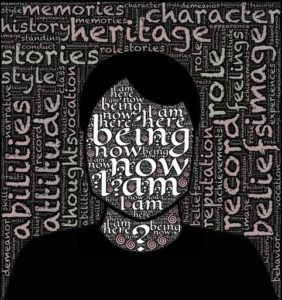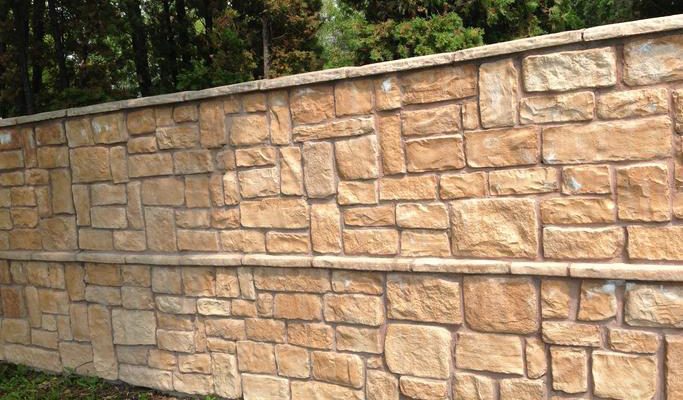Are people running into your walls?
Defensiveness takes many forms.
 “Identity politics” where cultural or ethnic groups form alliances is nothing new. Political polarization has been true since America’s inception.[1] Sexual identity has expanded beyond biology; seen by many across a wide spectrum as not fixed but fluid.[2] NFL National Anthem protests suggest “everyone is to blame and everyone will suffer for it”[3] because tribalism “feeds on itself” becoming divisive and destructive.[4] It seems everyone has their own version of identity and vision of politics for good or ill. Yet identity is important to form a disposition, then allegiance, then community.
“Identity politics” where cultural or ethnic groups form alliances is nothing new. Political polarization has been true since America’s inception.[1] Sexual identity has expanded beyond biology; seen by many across a wide spectrum as not fixed but fluid.[2] NFL National Anthem protests suggest “everyone is to blame and everyone will suffer for it”[3] because tribalism “feeds on itself” becoming divisive and destructive.[4] It seems everyone has their own version of identity and vision of politics for good or ill. Yet identity is important to form a disposition, then allegiance, then community.
 Cities in the ancient world were imperative for any community. City location depended on three major factors: (1) proximity to trade routes, (2) access to water, and (3) strong defenses. Fortifications were contingent on a location overlooking the surrounding countryside. Entrance to a city was usually accessible from only one route. Difficult terrain in every other direction acted as a natural defense against armies limited to ground attacks. City walls were erected around a city’s perimeter but were strongest, thickest, highest, and buttressed best at the city gate. Anyone desiring to enter the city would find the entrance bristling with armaments, operating under the control of well-trained soldiers.
Cities in the ancient world were imperative for any community. City location depended on three major factors: (1) proximity to trade routes, (2) access to water, and (3) strong defenses. Fortifications were contingent on a location overlooking the surrounding countryside. Entrance to a city was usually accessible from only one route. Difficult terrain in every other direction acted as a natural defense against armies limited to ground attacks. City walls were erected around a city’s perimeter but were strongest, thickest, highest, and buttressed best at the city gate. Anyone desiring to enter the city would find the entrance bristling with armaments, operating under the control of well-trained soldiers.
 City gates in the Old Testament were as well guarded as we guard ourselves, our own communities now. Enter Proverbs 18:19, “A brother offended is more unyielding than a strong city, and quarreling is like the bars of a castle.” Caustic, contentious, combative comments can create invisible walls of estrangement. Relational dividing walls are easy to erect but hard to breach. Emotional energy is directed toward defensiveness, alienation, and entrenchment. Our time commitments become overwhelmed by meetings and conversations to overcome another’s defenses.
City gates in the Old Testament were as well guarded as we guard ourselves, our own communities now. Enter Proverbs 18:19, “A brother offended is more unyielding than a strong city, and quarreling is like the bars of a castle.” Caustic, contentious, combative comments can create invisible walls of estrangement. Relational dividing walls are easy to erect but hard to breach. Emotional energy is directed toward defensiveness, alienation, and entrenchment. Our time commitments become overwhelmed by meetings and conversations to overcome another’s defenses.
 How do we guard against defensiveness? Every person, every movement, every community must step back to reexamine the issues, take stock of what’s at stake, avoiding impasse (Proverbs 18:15). Everyone must reevaluate her own perspective so that she offers more than her own “opinion” (18:2). Everyone must listen first, talk second (18:13). Everyone must set aside individual concerns for the betterment of all (18:1). Everyone must clothe themselves in humility (18:12). If we change our attitudes and approaches our comrades and our enemies will take note, and perhaps, follow suit. Our dispositions influence our allegiances then our communities.
How do we guard against defensiveness? Every person, every movement, every community must step back to reexamine the issues, take stock of what’s at stake, avoiding impasse (Proverbs 18:15). Everyone must reevaluate her own perspective so that she offers more than her own “opinion” (18:2). Everyone must listen first, talk second (18:13). Everyone must set aside individual concerns for the betterment of all (18:1). Everyone must clothe themselves in humility (18:12). If we change our attitudes and approaches our comrades and our enemies will take note, and perhaps, follow suit. Our dispositions influence our allegiances then our communities.
 We should be glad to listen to others, obtaining their point of view on anything, especially when it differs from our own (Philippians 2:4). When attacked we should attempt to find a way around the problem with an ultimate goal toward reconciliation “as much as it depends” on us (Romans 12.18). We should honor those in authority even if they are diametrically opposed to our point of view (1 Peter 2:13-17). We should accept responsibility for our work as a testimony toward others (1 Thessalonians 4:11-12). Ultimately, our vocational commitments should attract people to the gospel (Titus 2:10).
We should be glad to listen to others, obtaining their point of view on anything, especially when it differs from our own (Philippians 2:4). When attacked we should attempt to find a way around the problem with an ultimate goal toward reconciliation “as much as it depends” on us (Romans 12.18). We should honor those in authority even if they are diametrically opposed to our point of view (1 Peter 2:13-17). We should accept responsibility for our work as a testimony toward others (1 Thessalonians 4:11-12). Ultimately, our vocational commitments should attract people to the gospel (Titus 2:10).
Consider how to employ these “Never – Always” statements:
-
Never write critical remarks, always deliver dissatisfaction face-to-face
-
Never reject 100% of a negative review, always look for the kernel of truth within the critique
-
Never surround yourself only with those who agree, always seek counsel from those who don’t
-
Never create an atmosphere where people build walls; always build bridges
-
Never disqualify someone’s idea, always find a positive connection to the discussion
 Our “identity” as Christians is in Christ (Galatians 2:20). Breaking into adversarial groups should not be a part of Christian conduct (1 Corinthians 3:1-9). Our conduct with each other will be a beacon of love to the world around (John 13:34, 35). For our part, we should bring down the walls of defensiveness, building bridges to others instead (Philemon). Our Christian identity forms our dispositions, our allegiances, and our communities. [See afterword below.]
Our “identity” as Christians is in Christ (Galatians 2:20). Breaking into adversarial groups should not be a part of Christian conduct (1 Corinthians 3:1-9). Our conduct with each other will be a beacon of love to the world around (John 13:34, 35). For our part, we should bring down the walls of defensiveness, building bridges to others instead (Philemon). Our Christian identity forms our dispositions, our allegiances, and our communities. [See afterword below.]
 This essay also appears at Emerging Scholars Network (here). Dr. Mark Eckel is President of The Comenius Institute (website), spends time with Christian young people in public university (1 minute video), hosts a weekly radio program with diverse groups of guests (1 minute video), interprets culture from a Christian vantage point (1 minute video), and teaches at his church (video). Picture credit: snappygoat.com
This essay also appears at Emerging Scholars Network (here). Dr. Mark Eckel is President of The Comenius Institute (website), spends time with Christian young people in public university (1 minute video), hosts a weekly radio program with diverse groups of guests (1 minute video), interprets culture from a Christian vantage point (1 minute video), and teaches at his church (video). Picture credit: snappygoat.com
FOOTNOTES
[1] Willick, Jason, “Polarization Is an Old American Story,” Wall Street Journal Online 2 February 2018 https://www.wsj.com/articles/polarization-is-an-old-american-story-1517613751
[2] Dastagir, Alia E. “’Born this way’? It’s way more complicated than that” USA Today Online 15 June 2017 https://www.usatoday.com/story/news/2017/06/16/born-way-many-lgbt-community-its-way-more-complex/395035001/
[3] Last, Jonathan V. “It’s Trump vs. the NFL, and We’re All Losers,” The Weekly Standard Online 25 September 2017 https://www.weeklystandard.com/its-trump-vs.-the-nfl-and-were-all-losers/article/2009805
[4] Sullivan, Andrew, “American Wasn’t Built for Humans,” New York Magazine Online 19 September 2017 https://nymag.com/daily/intelligencer/2017/09/can-democracy-survive-tribalism.html
AFTERWORD
Questions
- When I disagree with someone do I ask for further context or explanation?
- Do I become angry or defensive if someone asks me a question? If so, why?
- Do I equate an inquiry about my position as an attack on my integrity? If so, why?
- Do I respect people who disagree with me? If not, why not?
- Who is the person or group building walls because of something I have said or done?
- Why do I automatically feel threatened when someone disagrees with me?
- Are all sides of a story being heard?
- How do I live with opposing views knowing there are no perfect solutions?
- What steps can I take toward conciliation?
- How have I contributed bricks to the wall of defensiveness?
Prayer Dear Lord. May my affections for my fellows change my disposition to become likeminded, setting aside ambition and conceit, raising the significance of others while I lower myself. Amen. (A prayer based on Philippians 2:1-3)


